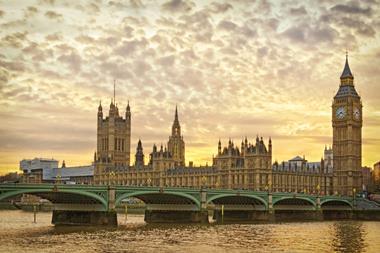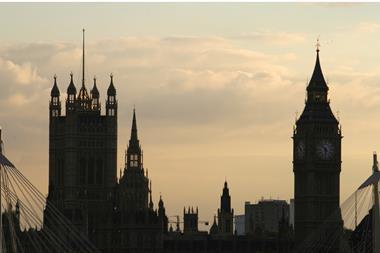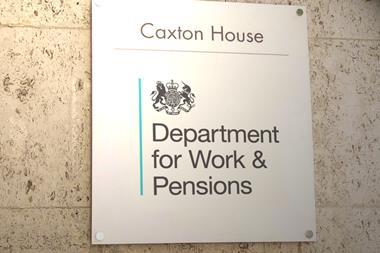The UK government today brought forward the regulations outlining climate risk assessment and reporting requirements for pension scheme trustees, with experts sighting some helpful changes made in response to industry feedback on proposals outlined in January.
The Department for Work and Pensions (DWP) also set out the final statutory guidance today, alongside its response to the January consultation.
Adjustments made include allowing an extra year for in-scope pension schemes to start Scope 3 emissions reporting and raising the threshold for defined contribution default arrangements for which scenario analysis is required, from 250 members to £100m (€116m) or 10% of the assets.
The DWP has also decided to let defined benefit schemes align the scenario analysis requirement with their three-yearly valuation cycle.
The tabling of the regulations, which are informed by the Taskforce on Climate-related Financial Disclosures (TCFD) framework, makes the UK the first major economy to have put such requirements on the statute books.
”These world-leading regulations we outline today ensure these [climate] risks are accounted for, and are done so with total transparency,” said Guy Opperman, minister for pensions.
The DWP said that, coupled with its ongoing work on illiquid investments, the climate measures it was taking “will enable us to mitigate against the dangers of climate change while also grasping the opportunities available as we transition to net-zero”.
The UK government is aiming to introduce mandatory climate-related disclosures in line with the TCFD recommendations across the economy by 2025, with many of the requirements in place by 2023. Pension schemes were the first actors to be targeted, with the DWP setting out its initial proposals in August 2020.
“On balance, we consider the finalised regulation and guidance a powerful tool that will help pension scheme trustees better understand the risks and opportunities climate change poses”
Simon Jones, head of responsible investment at Hymans Robertson
Simon Jones, head of responsible investment at Hymans Robertson, said it was evident the DWP had considered a diverse range of stakeholder feedback, and that the legislation “builds in a degree of pragmatism and recognition that individual schemes are best placed to assess their own climate positions”.
“On balance, we consider the finalised regulation and guidance a powerful tool that will help pension scheme trustees better understand the risks and opportunities climate change poses,” said Jones.
Claire Jones, partner and head of responsible investment at LCP, said the government had made few material changes since the January consultation drafts and that the most significant ones responded to practical concerns.
”Given the urgency of the climate crisis, the speed at which the government has brought forward legislation in this area is to be applauded,” she added. ”We now have the final regulations and statutory guidance that set out what large schemes need to do, so they can proceed with confidence in preparing for the new regime.”
At Cardano, group head of sustainability Will Martindale said: “In our experience, many UK trustees have already embraced the spirit of the regulation – and have taken steps to understand the use of climate-related metrics, scenarios and target-setting.
“The regulation rewards first-movers, levels the playing field and – most importantly – raises minimum standards.”
The new regulations for pension schemes, subject to parliamentary debate, will affect all authorised master trusts and schemes with £5bn (€5.8bn) or more in assets from October 2021 onwards.











